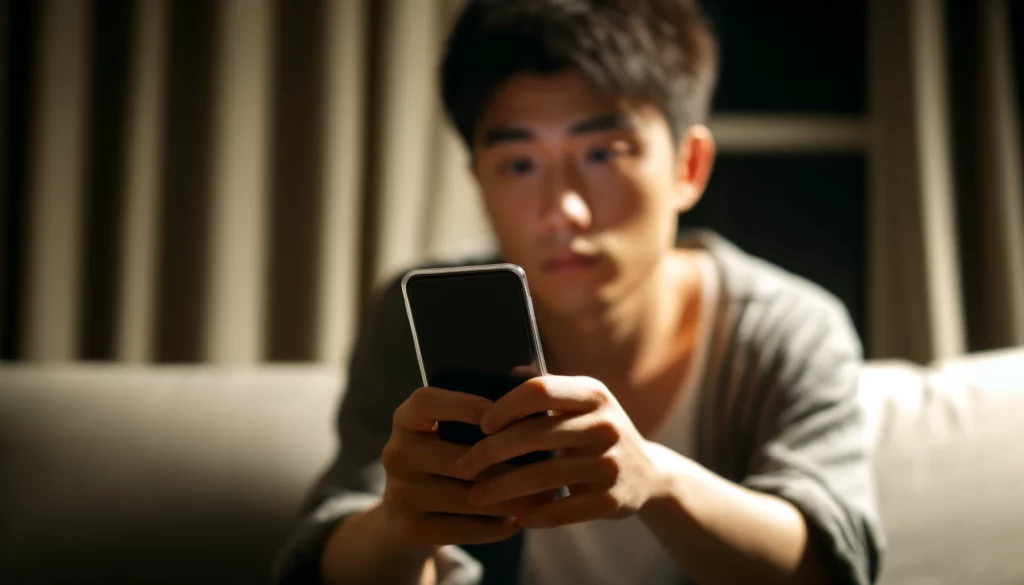300 million people in China are now suffering from sleep disorders

Survey Reveals Only 19% of Chinese are Free from Sleep Disorders
A recent study (2023-2024) conducted by the China Sleep Research Society has highlighted a concerning trend in sleep health among the Chinese population, with only 19% of individuals reporting no sleep disorders. The findings, derived from a survey of over 10,000 respondents across various demographics, indicate a significant decline in both the quantity and quality of sleep, with many attributing this to factors such as online addiction and extended work hours.
Cost-Effective Agency
KPI and Results focused. We are the most visible Marketing Agency for China. Not because of huge spending but because of our SMART Strategies. Let us help you with: E-Commerce, Search Engine Optimization, Advertising, Weibo, WeChat, WeChat Store & PR.

Key Findings from the Study:
- Average Sleep Duration: The average sleep time among Chinese individuals has reduced to 6.75 hours per night, down from 8.5 hours in 2012 and 7.06 hours in 2021.
- Prevalence of Insomnia: Nearly 60% of participants suffer from insomnia, highlighting widespread issues with sleep across the country.
- Quality of Sleep: The study also found that 64% of respondents experience poor sleep quality due to various disturbances, including trouble falling asleep, nocturnal and early awakenings, and nocturnal urination.
- Impact on Youth: College students, especially those born after 2000, are notably affected, with over half reporting bedtime past midnight and extensive smartphone use exceeding eight hours a day.
The report warns that more than 300 million people in China are now suffering from sleep disorders, an increase that has sparked considerable growth in the “sleep economy.” This sector includes products and services designed to improve sleep, such as sleep assistants offering bedtime chats, ASMR devices, aromatic candles, and sleep masks. According to market research by iiMedia, this industry was valued at 495.6 billion yuan ($68.9 billion) in 2023 and is projected to rise to about 658.7 billion yuan by 2027.
The lifestyle problem of Phone addicts
These findings underscore the urgent need for interventions and lifestyle adjustments to combat the rising prevalence of sleep disorders in China, suggesting a growing market for sleep-related products and services aimed at enhancing sleep health.
The market for sleep aids in China is experiencing robust growth, driven by increasing awareness of sleep health and the rising prevalence of sleep disorders among the population. Here are five key trends shaping this market, followed by examples of popular products that align with these trends:
Key Trends in China’s Sleep Aid Market
- Technological Integration: Advances in technology have led to the development of innovative gadgets designed to enhance sleep quality. Consumers are increasingly turning to tech-based solutions that offer personalized insights and improvements to their sleep patterns.
- Natural and Herbal Products: There is a growing preference for natural and herbal remedies over synthetic sleeping aids. This trend is driven by a broader consumer shift towards organic and natural wellness products, perceived as safer and with fewer side effects.
- Stress and Anxiety Management: With the fast-paced lifestyle and high-pressure work environments, products that help manage stress and promote relaxation are in high demand. These products are often marketed not only as sleep aids but also as solutions for overall well-being.
- Customization and Personalization: Consumers are seeking solutions tailored to their specific needs, leading to the popularity of customizable sleep aid products that cater to individual preferences and requirements.
- Omnichannel Retailing: The availability of sleep aids across various channels, including online platforms, specialized wellness stores, and pharmacies, enhances consumer access and convenience, driving further market growth.

Examples of Sleep Aid Products sold well in China
- Sleeping Pills: Brands like ‘Dormibene’ offer over-the-counter sleeping pills that are popular among those seeking immediate relief from insomnia. These are formulated to help shorten sleep onset time and are advertised as non-habit-forming.
- Health Supplements: Supplements such as melatonin or magnesium are widely used to promote better sleep. Melatonin, in particular, is favored for its effectiveness in adjusting sleep cycles, especially useful for jet lag or irregular schedules.
- Gadgets to Aid Sleep: Products like sleep-tracking smartwatches and apps measure sleep quality and provide insights and recommendations for improvement. For example, the Xiaomi Mi Band tracks sleep patterns and offers personalized advice through its app.
- Massage Oils: Aromatic massage oils infused with essential oils like lavender, chamomile, or jasmine are used to soothe the body and mind. Brands like ‘Young Living’ and ‘doTERRA’ provide high-quality options that are popular for their relaxation properties.
- Sound Machines and ASMR Devices: Devices that produce white noise or feature ASMR (Autonomous Sensory Meridian Response) sounds are increasingly popular. These help mask background noise and create a calming environment conducive to sleep.
These trends and products reflect a dynamic and growing market in China, driven by an increasing consumer focus on health and wellness. As awareness and education about sleep health continue to rise, so too will the diversity and sophistication of products designed to meet the evolving needs of Chinese consumers.
How to sell Selling sleep aid products in China ? Ecommerce

Selling sleep aid products in China involves a multifaceted approach, leveraging both digital platforms and effective marketing strategies to tap into the growing consumer demand for sleep-enhancing solutions. Here’s a guide on how to effectively sell these products in the Chinese market:
E-Commerce Platforms
- Tmall and JD.com:
- Setup: Establish a storefront on these major e-commerce platforms to access a vast consumer base. Ensure that your listings are detailed, with clear images and information about product benefits.
- Participation in Sales Events: Engage in annual shopping festivals such as Singles’ Day (11.11), 618 Sale, and other platform-specific promotions to boost visibility and sales.
- Cross-Border E-commerce Platforms:
- Leverage Platforms like Kaola and Tmall Global: These platforms are crucial for foreign brands that want to sell their products in China without a local entity, especially appealing for selling health-related products that require consumer trust in quality and origin.
Social Media and Digital Marketing
- Douyin (TikTok):
- Content Strategy: Create engaging and informative content that demonstrates the effectiveness of your products. Use before-and-after scenarios, testimonials, and educational videos about the importance of sleep.
- Influencer Partnerships: Collaborate with popular health and wellness influencers on Douyin to reach broader audiences. Influencers can share personal experiences and showcase your products in a relatable manner.
- WeChat:
- Official Account: Develop a WeChat official account to share content, engage with users, and offer customer service. Post articles on sleep health tips and product information.
- WeChat Store: Utilize WeChat’s built-in e-commerce capabilities to sell directly to consumers within the app.
- Xiaohongshu (Little Red Book):
- UGC and Reviews: Encourage user-generated content and reviews. Xiaohongshu’s platform is trusted for authentic user reviews and lifestyle recommendations.
- Brand Partnerships: Engage with lifestyle and wellness KOLs to create posts that fit the aspirational and lifestyle-focused nature of the platform.
Offline Integration
- Pop-up Stores and Experience Centers:
- Create temporary pop-up stores in high-traffic urban areas or shopping malls. Use these spaces to educate consumers about the importance of sleep, demonstrate product use, and provide free trials.
- Collaborations with Sleep Clinics and Wellness Centers:
- Partner with medical professionals and wellness centers to endorse your products. This can add credibility and targeted exposure.
Promotions and Consumer Engagement
- Loyalty Programs:
- Develop loyalty programs that reward repeat purchases or referrals, which are particularly effective in health and wellness sectors where ongoing consumption is common.
- Educational Campaigns:
- Host webinars or live streams featuring sleep experts to educate consumers about sleep disorders and promote your products as solutions.
- Targeted Advertising:
- Use data-driven advertising on platforms where your target consumers spend time, especially in the evenings when they are likely contemplating sleep-related products.
By utilizing a combination of online presence, strategic social media use, and offline engagement, businesses can effectively market and sell sleep aid products in China’s dynamic market. Understanding and adapting to local consumer behavior and preferences are key to capturing and sustaining the interest of Chinese consumers in the sleep aid sector.






